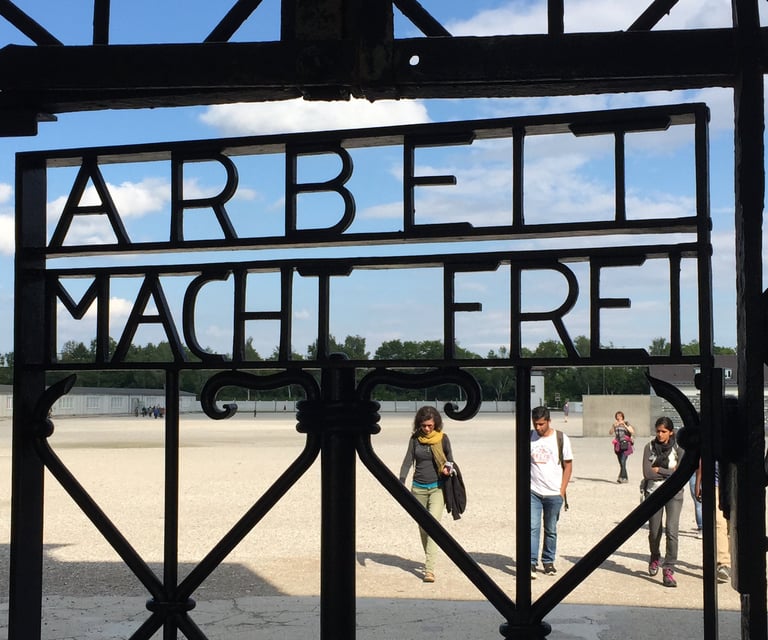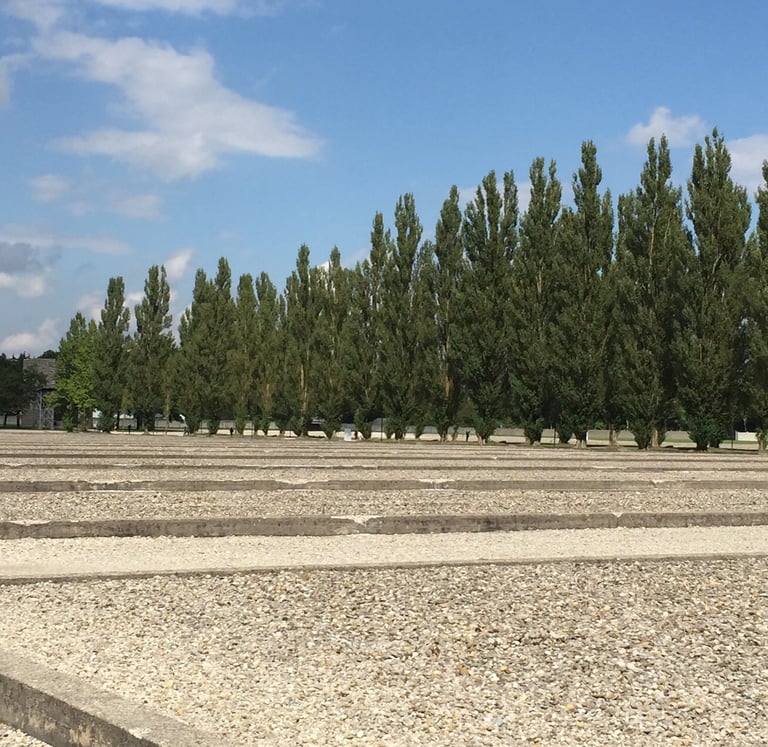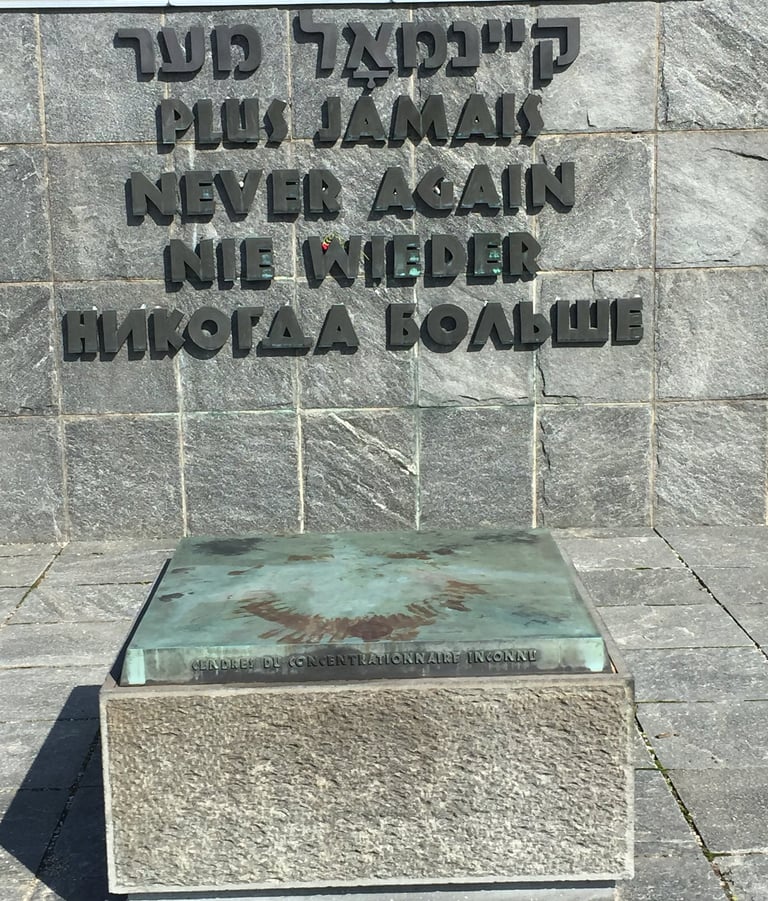We Belong To Each Other
I was on a train returning from Dachau Concentration Camp the day the Syrian refugees arrived in Munich, Germany, in September 2015.
Separated by a single platform, our arrivals could not have been more different.
Having just left Dachau, it struck me how dissimilar the train trips arriving in Germany that day and in the months ahead were from those that delivered millions of individuals to the concentration camps in the 1930s and 1940s.
When hundreds of thousands of Syrian refugees, some who had been walking for more than a month, approached the border, I listened as a news reporter asked German Chancellor Angela Merkel if she would “allow” refugees in. Her response was swift and unwavering when she stated Germany would “welcome” the refugees because it was the right thing to do. I am still struck by her linguistic choice, which showed her country’s residents and those around the world that the refugees were not seen as a burden, but as people to be welcomed.
I watched as Munich citizens in the train station cheered and held signs written in Syrian, German, English and Arabic that said, “Welcome to Germany, we are so glad you are here!” When the train doors opened and those completely exhausted refugees stepped onto the platforms, they appeared stunned by what they saw. After reading the signs, I saw their weary faces turn to smiles as they realized that they were not only welcomed, they were wanted. Their harrowing journeys were over.
As the refugees exited the trains, they left on the platforms clean diapers, clothes and blankets given to them by aid agencies as they walked and traveled the more than 1,800 miles from Syria to Germany. Instead of leaving those items on the trains or strewn about, they left them neatly folded and stacked on the platforms for whoever needed them.
A group of three young Syrian men approached me at the ticket kiosk in the station and asked for my help to purchase train tickets from Germany to France. To be clear, they did not ask me for money. They simply asked me whether I could help them navigate the computerized ticket system to find tickets for the most direct route to France. Although they initially asked for my help while speaking German, when they realized that my German was limited to what I remembered from high school, they immediately switched and spoke to me in English. After several minutes, the four of us were able to find the shortest and most economical tickets. As I pointed them to the correct train platform, they thanked me profusely and with tears in their eyes. Mine were filled, too. I will never forget that day.
As nations, we often are called to help others fleeing war-torn countries and atrocities against humanity that we cannot even begin to imagine. Mother Teresa once said, “If we have no peace, it is because we have forgotten that we belong to each other.” As people of mercy and compassion, we must do whatever we can to welcome and help the refugees, immigrants and others in need. Unless one is a Native American, the rest of us sometimes need to be reminded that none of us got here without help from others. The same is true for most things in life. No one gets through this life without needing some kind of help.
While in Germany, I heard stories of incredible acts of kindness toward the refugees that gave me hope in what seemed like a hopeless situation. In addition to assistance from the government and humanitarian agencies, German residents offered rooms in their homes to whoever needed them. When the Austria government closed its borders after a couple of days and refused to let refugees walk across the border into Germany, Austrian citizens formed a convoy of more than 100 cars, picked up refugees who were walking and drove them across the border, where German citizens met them to continue the trip.
The Syrian refugees didn’t know where they were going when they left their war-torn country, what was ahead, if they would survive the journey and, if so, if anyone would welcome them, yet still they came. I often wonder if I would have the same courage and strength to do so if required.
Since that day in 2015, I’ve tried to be more like the refugees in the most basic of ways. I continually work to give away or let go of things I no longer need or want. This includes clothes and other possessions, as well as feelings I stubbornly hang onto, such as loss, uncertainty, fear, hurt and disappointment, even though letting go of them would undoubtedly bring peace to my life. Like the refugees, I try to be grateful for even the smallest kindnesses shown to me, to leave for others what I no longer need or want, and to trust in what I feel is the innate goodness in people. I’m not always as successful or consistent as I’d like to be, but I intend to continue the journey.





